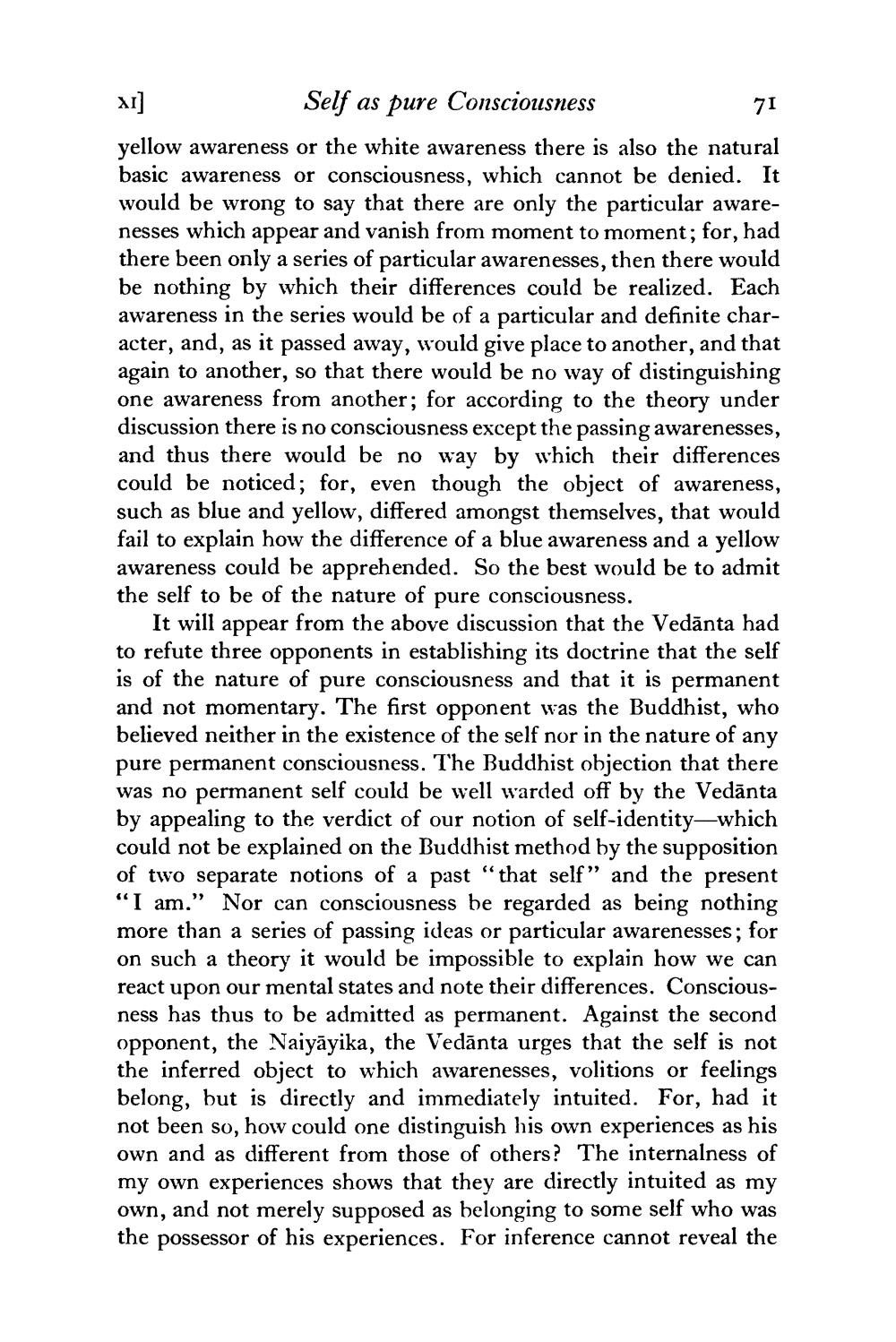________________
XI]
Self as pure Consciousness
71
yellow awareness or the white awareness there is also the natural basic awareness or consciousness, which cannot be denied. It would be wrong to say that there are only the particular awarenesses which appear and vanish from moment to moment; for, had there been only a series of particular awarenesses, then there would be nothing by which their differences could be realized. Each awareness in the series would be of a particular and definite character, and, as it passed away, would give place to another, and that again to another, so that there would be no way of distinguishing one awareness from another; for according to the theory under discussion there is no consciousness except the passing awarenesses, and thus there would be no way by which their differences could be noticed; for, even though the object of awareness, such as blue and yellow, differed amongst themselves, that would fail to explain how the difference of a blue awareness and a yellow awareness could be apprehended. So the best would be to admit the self to be of the nature of pure consciousness.
It will appear from the above discussion that the Vedanta had to refute three opponents in establishing its doctrine that the self is of the nature of pure consciousness and that it is permanent and not momentary. The first opponent was the Buddhist, who believed neither in the existence of the self nor in the nature of any pure permanent consciousness. The Buddhist objection that there was no permanent self could be well warded off by the Vedanta by appealing to the verdict of our notion of self-identity-which could not be explained on the Buddhist method by the supposition of two separate notions of a past "that self" and the present "I am." Nor can consciousness be regarded as being nothing more than a series of passing ideas or particular awarenesses; for on such a theory it would be impossible to explain how we can react upon our mental states and note their differences. Consciousness has thus to be admitted as permanent. Against the second opponent, the Naiyayika, the Vedanta urges that the self is not the inferred object to which awarenesses, volitions or feelings belong, but is directly and immediately intuited. For, had it not been so, how could one distinguish his own experiences as his own and as different from those of others? The internalness of my own experiences shows that they are directly intuited as my own, and not merely supposed as belonging to some self who was the possessor of his experiences. For inference cannot reveal the




